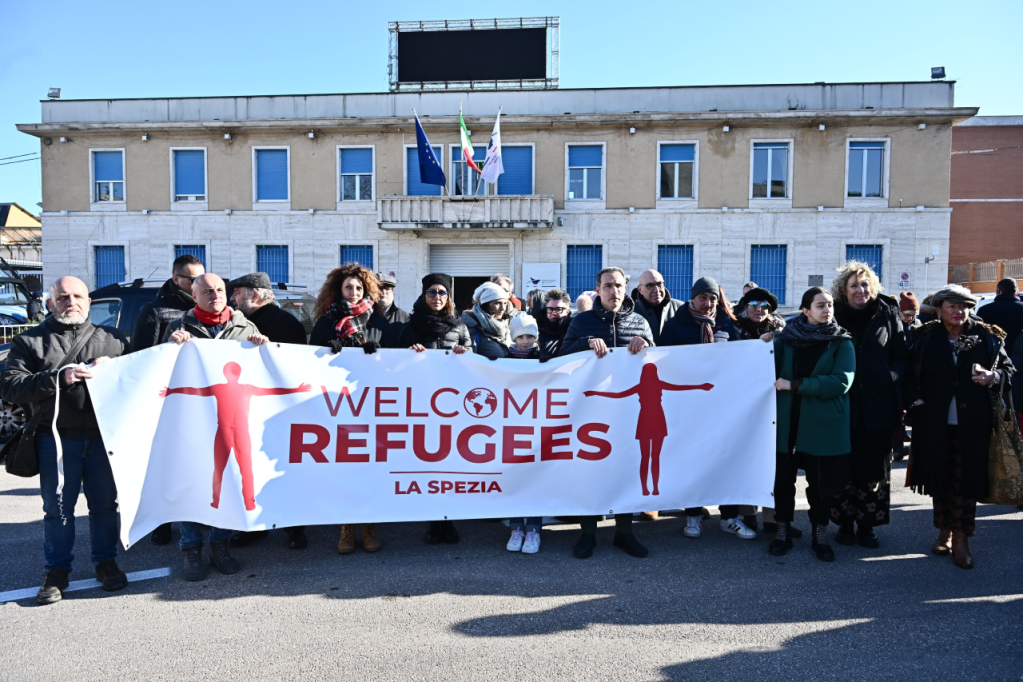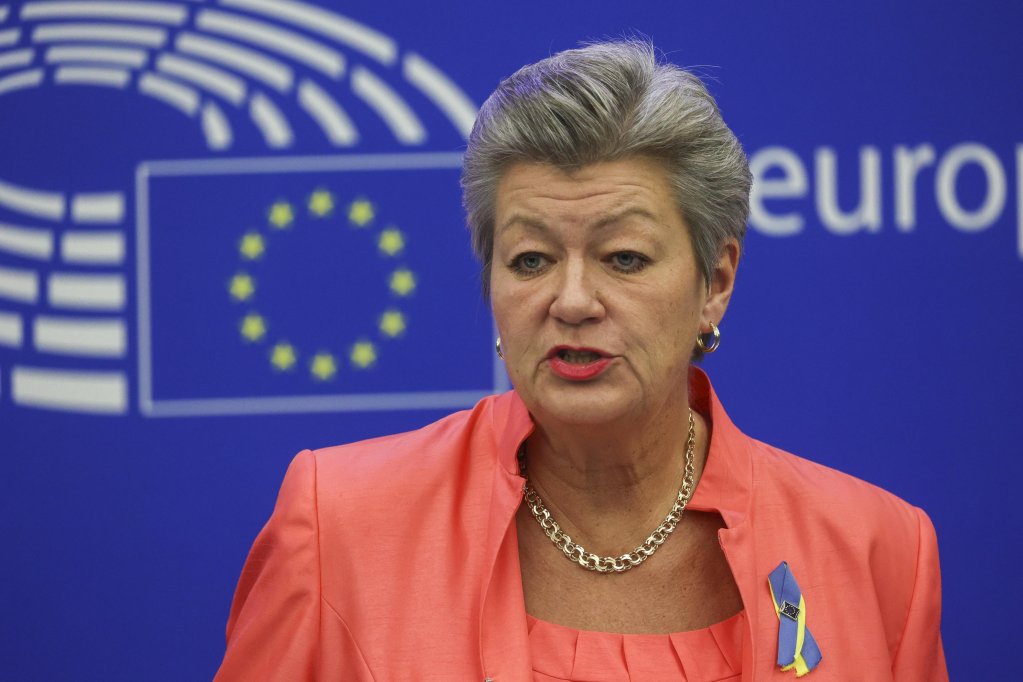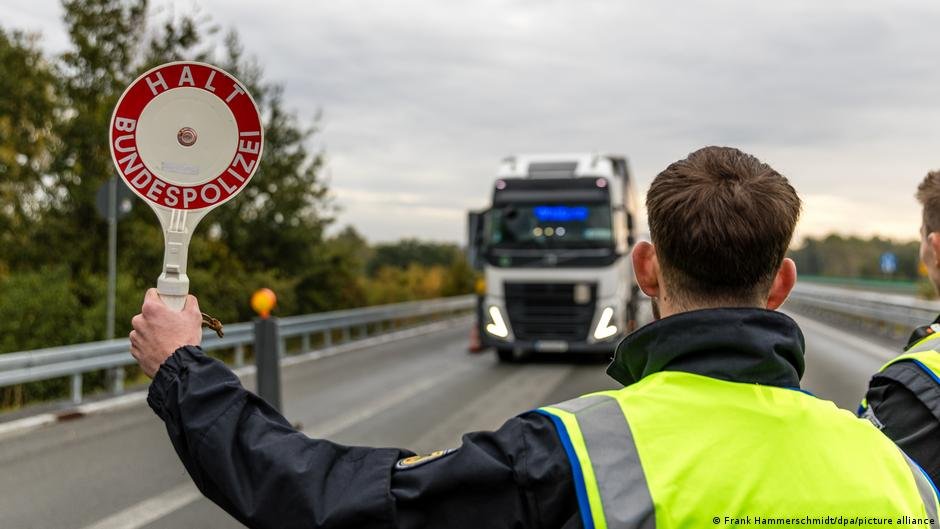A survey carried out by the polling firm Ipsos among almost 26,000 Europeans found that 51% of respondents disapproved of the EU's migration policy and wanted stronger border control.
The European parliament will hold elections in June this year, with migration again one of the key themes on which voters decide how to cast their ballot.
But ahead of that vote, the survey firm Ipsos carried out a poll in which they found that 51% of Europeans had a "negative assessment" of the bloc's migration policy, reported the European news broadcaster Euronews, who commissioned the poll.
According to the survey commissioned, 59% of respondents believe that the EU needs to make the "fight against irregular migration a priority, making it the fourth most important topic on the agenda," reported Euronews.
The top three concerns highlighted in the poll were rising prices, social inequalities and economic growth.
Migration attracted the most 'disparaging' views
Only 16% of those asked had a "positive view" of the impact European migration policy had on migration, reported Euronews.
Meanwhile 32% of those surveyed admitted their view was "neither positive nor negative."

In fact, the theme of migration caused the most "disparaging" views of all the six themes examined by the survey, reported Euronews. Among other things, participants were also asked about the handling of the COVID-19 pandemic and Russia's invasion of Ukraine.
The percentage of those critical of European migration policy varied depending on nationality. For instance in France, 62% had a negative view of Europe's migration policy, in Austria the figure was 60%, and in Hungary 58%.
In Denmark, Romania and Finland, citizens held less negative views on EU migration policy, with only 26% of Danes surveyed declaring themselves to hold a negative view, while 27% of Romanians agreed with them and 32% of Finns.
The survey also asked respondents about their overall voting intentions in the upcoming elections. They found that those who held negative views said they intended to vote for far-right parties, hard-right Conservative parties, or far Left parties within the bloc.
Also read: Europe finds appeal in border fences once again
Opinions based on voting preferences
Most voters, who say they normally vote for conservative parties contained within the European People's Party EPP bloc, expressed "more nuanced" views, reported Euronews. 46% of these voters said they had a negative view of European migration policy, while 20% thought it was positive and 34% were on neither side.
Some analysts have recently accused politicians within the EPP block of harnessing anti-migrant views in order to win votes.
For voters who intended to vote for the center-left Socialists and Democrats (S&D) group, 33% said they held negative views regarding European migration policy, 24% said they were positive about the migration policies currently being pursued, and 42% didn't come down on either side.
The results of the survey, reported Euronews, come just a month after news that 2023 saw Europe register the greatest number of asylum applications since 2016, with 1.14 million applications being made.
The rise of the (far) right
The narrative towards migration has since begun to turn negative in several European countries, often in line with an increase in the numbers of arrivals. In many parts of Europe, these views have resulted in the right, or far-right winning power.
Andrew Geddes, the director of the Migration Policy Center at the European University Institute, told Euronews that he believed that people's concerns about migration had been fuelled and politicized by far-right parties across Europe.
"We can see that migration is steadily becoming a more important issue. Its importance is growing and it's motivating the votes of sections of the electorate. So it's not the most important issue, but it's important," Geddes explained to Euronews.
"I think fundamentally it boils down to people wanting to see a system that works, that functions, and that member states can agree with each other on. But what they see instead is member states disagreeing with each other about what the policy should be [and] continual disputes about migration."
Difficulty agreeing on policy within the bloc
Migration policy is not just a contentious issue among much of Europe's voters but also among the states themselves. The European Commission has been seeking agreement on its New Pact on Migration and Asylum since the beginning of its legislature.
It only reached a provisional agreement in December 2023, and is still in the final stages of the legislative process, meaning that any effects of the policy will not be seen before the June elections.

According to Euronews, the dissatisfaction expressed in the survey with migration policy was matched by a call for stronger border controls to combat irregular migration. In fact, 71% of those asked said they thought that should be "the main focus in the coming years."
This figure was even greater in countries like Poland (86%), Bulgaria (83%) and Finland (83%). Just 28% of Europeans surveyed thought the bloc should do more to welcome migrants to the bloc "in the name of humanist values."
Perhaps surprisingly, Spanish and Italian citizens (who live in countries that see the some of the greatest numbers of arrivals) surveyed by Ipsos were actually the most receptive to being more welcoming. 41% of Spaniards thought that Europe should pursue a policy of welcome and 39% of Italians.
Stronger border controls
People who intend to vote for conservative and liberal parties are the most likely to call for stronger border controls, with socialists and democrats split between 57% asking for controls to be stronger, to 43% wanting to see more welcome policies.
Greens and Left voters tended to think that welcome policies should be at the fore.

